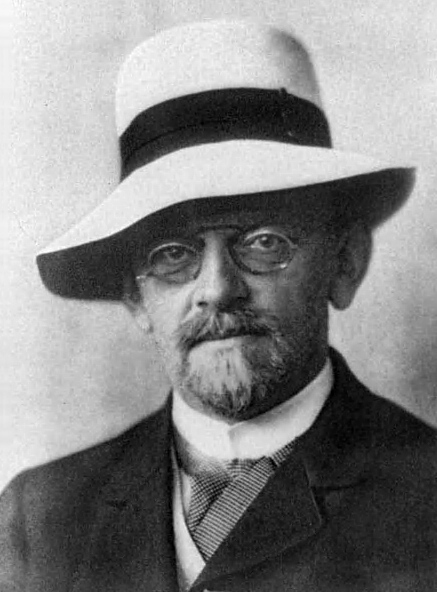David Hilbert foi um matemático alemão. Foi eleito membro estrangeiro da Royal Society em 1928. David Hilbert é um dos mais notáveis matemáticos, e os tópicos de suas pesquisas são fundamentais em diversos ramos da matemática atual.
David Hilbert nasceu em Königsberg, atualmente Kaliningrado, onde estudou na Universidade de Königsberg. Em 1895 foi nomeado professor da Universidade de Göttingen, onde lecionou até se aposentar, em 1930. Está sepultado no Stadtfriedhof de Göttingen. Hilbert é frequentemente considerado como um dos maiores matemáticos do século XX, no mesmo nível de Henri Poincaré. Devemos a ele principalmente a lista de 23 problemas, alguns dos quais não foram resolvidos até hoje, apresentada em 1900 no Congresso Internacional de Matemáticos em Paris.Suas contribuições à matemática são diversas, e envolvem, entre outras a consolidação da teoria dos invariantes, que foi o objeto de sua tese, a transformação da geometria euclidiana em axiomas, com uma visão mais formal que Euclides, para torná-la consistente, publicada no seu Grundlagen der Geometrie , trabalhos sobre a teoria dos números algébricos, a criação dos espaços que levam seu nome, durante seus trabalhos em análise sobre equações integrais e contribuição para as formas quadráticas, que serviriam como bases matemáticas da teoria da relatividade de Albert Einstein.
Wikipedia
✵
23. Janeiro 1862 – 14. Fevereiro 1943
